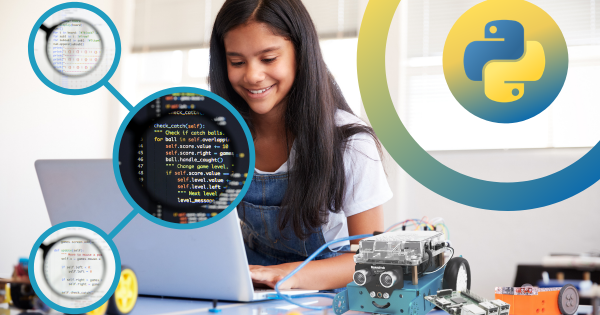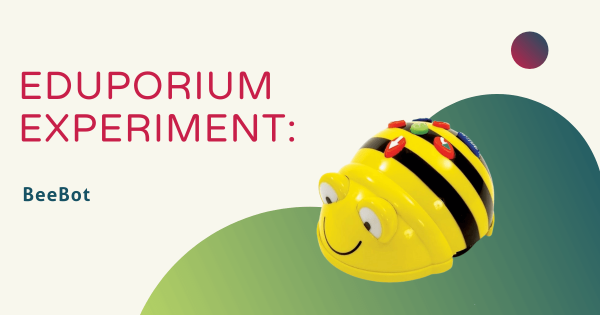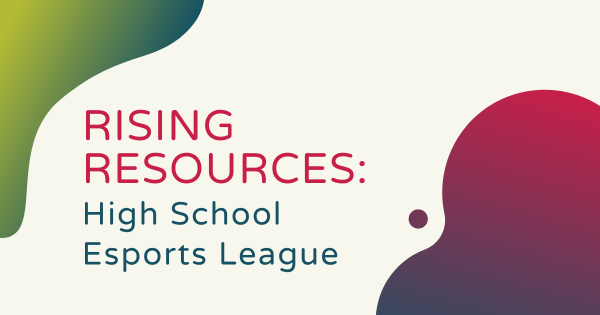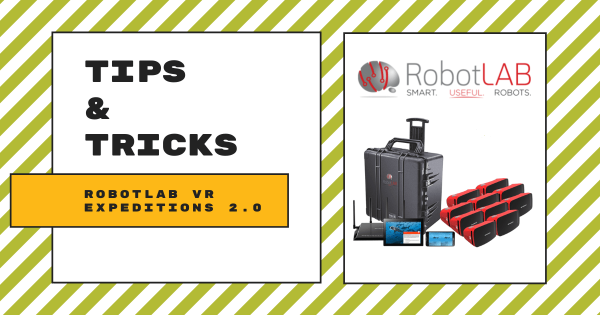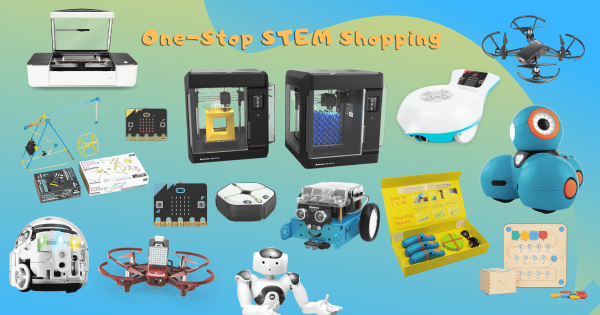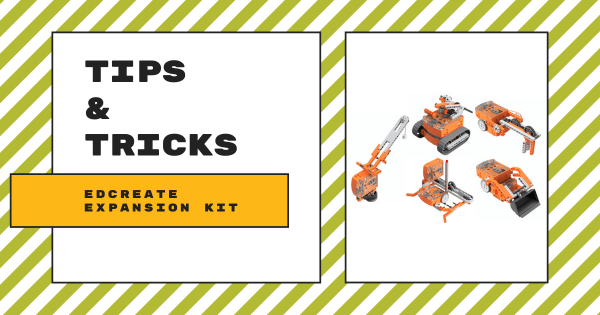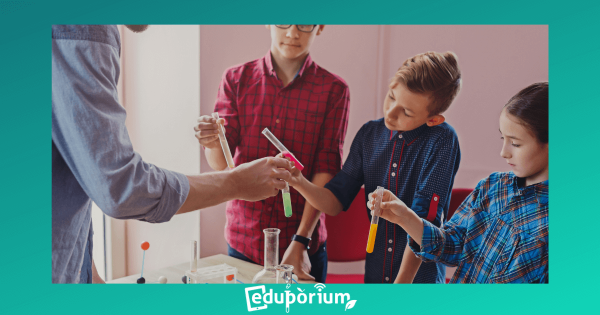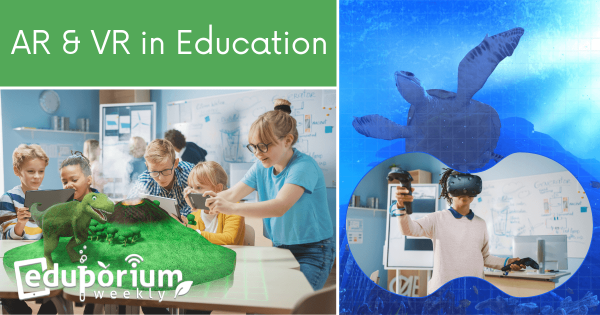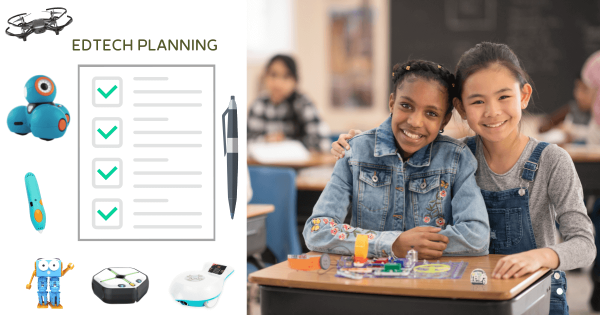Python is an open language that’s perfect for both first-time programmers and students who have experience, empowering them to broaden their CS knowledge and abilities. It’s completely text-based and often described as a general-purpose language that’s used primarily in web development, app generation, scientific computing, and in creating graphical interfaces.
STEM
When it comes to STEM in 21st century teaching and learning, there are few limits to what students can accomplish. Besides helping boost their overall engagement and enjoyment levels in the here and now, access to STEM learning and opportunities to build real-world skills often significantly improve how students prepare for the future. Whether it's with introducing them to coding in the early grades, engineering in their middle years, or the benefits of more complex technologies, like virtual reality or artificial intelligence, in high school, STEM education is a crucial piece of student development. With such huge potential and importance, however, this instruction requires planning, guidance, and equipment. And, as the economy keeps trending toward STEM-dominated professions and opportunities, exposure to these areas is vital. Thankfully, there are few restrictions to leading effective STEM lessons.
Our mission is helping educators develop students who are truly Future Ready and helping them facilitate relevant learning is how. To that end, we offer a robust online store filled with the latest STEM solutions. But, beyond that, we love creating and sharing impactful content to help enhance how educators use these tools in instruction. In this section of our blog, you'll find countless posts on trending STEM topics, how-to articles, many recommendations for classroom solutions and projects, industry updates, connections between STEAM tools and the future, and a lot more. We are also extremely committed to closing certain gaps and increasing equity in STEM education. As such, a lot of this content contains context for advancing inclusive opportunities for all kids. We encourage you to search through the posts to find something relevant for you. And, if there's any topics we've missed, let us know.
-
Eduporium Experiment | Bee-Bot Robot
To use the Bee–Bot See & Say model with a device, kids can download the Bee–Bot app from the app store. It’s available for iOS devices (iPhone and iPad) and Android devices, offering them the chance to bolster new coding skills while playing games. Most importantly, it creates a stepping stone to the next level of coding with the Bee–Bot -
Rising Resources | High School Esports League
So much goes into creating a school esports program, especially if you are trying to quickly start competing against other teams. If you’re interested in jumping in to interscholastic gaming competitions as opposed to students just playing with their classmates, the High School Esports League serves as a great resource for athletic directors, tech directors, and even coaches. -
Tips & Tricks | The RobotLAB VR Expeditions 2.0 Kits
Though modeled after the Google Expeditions system, the Expeditions 2.0 VR kits feature new technical and instructional upgrades as the RobotLAB team designed them based on the feedback from thousands of educators. Plus, among the 700 Expeditions 2.0 field trips, teachers can find relevant content that aligns with their lesson plans, which we’ll explore more inside. -
Where To Buy STEM Tools For Innovative Learning
With real improvements to availability, value, reliability, and effectiveness in today’s STEM tools for students, it might be easy to make purchases from the first store you find. Over the years, however, we like to think that we’ve created a very unique shopping experience for teachers and want to make sure you’re aware of the benefits of buying EdTech tools -
Tips & Tricks | The Edison Robot EdCreate Expansion Kit
The EdCreate Expansion Kit for enhancing Edison Robot STEAM projects helps students focus on construction with its 115 building parts, including blocks, gears, wheels, pegs, and more that are each compatible with both the Edison and LEGOs. The kit also includes classroom project guides and instructional videos that show students how to construct the five EdBuilds. -
Eduporium Weekly | The Factors Driving STEM Education Today
So many factors go into how education leaders ensure students are ready for the real world and, often, it involves STEM. Factors like technology, the economy, emerging careers, and the state of the workforce each continue to affect how teachers introduce students to STEM. And, as of now, there isn’t much indication that the elements fueling STEM education will slow. -
Eduporium Weekly | Creating A School STEM Program
While we don’t want to place too much pressure on any educators starting new STEM programs, there are some key suggestions we can provide. The first of those is to decide on and define the direction of the STEM program, including its identity, purposes, and objectives, which often means that the learning experiences should reflect real-world problem solving. -
Eduporium Weekly | AR And VR In Education
One of the most common terms associated with AR and VR—especially in education—is immersive. Using VR systems, students can truly plunge into any number of immersive worlds but, beyond that, VR content is incredibly impactful for teaching students about some of today’s most intriguing real-world industries while also helping them gain practical experience at times. -
Helping You Plan For Effective STEM Education In 2023-24
If you are excited but stressing just a little bit about your plans for including STEM instruction in the classroom this school year and, also potentially, on a district-wide scale, we’d encourage all to share any ideas with us. We are happy to set up a consultative call to help us better understand your STEM goals with an eye on




